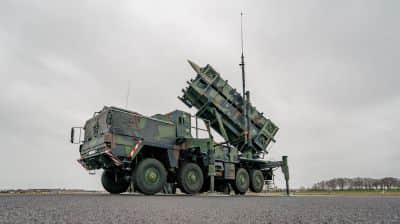IAEA sees no immediate threat to Zaporizhzhia Nuclear Power Plant from blowing up of Kakhovka plant
The International Atomic Energy Agency (IAEA) said on Tuesday that its experts are "closely monitoring the situation" and that there is no "immediate risk to nuclear safety" at the Zaporizhzhia Nuclear Power Plant following the destruction of the Kakhovka Hydroelectric Power Plant (HPP).
Source: a tweet by the IAEA, as reported by European Pravda
"The IAEA is aware of reports of damage at Ukraine’s Kakhovka dam; IAEA experts at Zaporizhzhia Nuclear Power Plant are closely monitoring the situation; no immediate nuclear safety risk at the plant," the report says.
The IAEA is aware of reports of damage at #Ukraine’s Kakhovka dam; IAEA experts at #Zaporizhzhya Nuclear Power Plant are closely monitoring the situation; no immediate nuclear safety risk at plant.#ZNPP
— IAEA - International Atomic Energy Agency ⚛️ (@iaeaorg) June 6, 2023
The International Atomic Energy Agency (IAEA) said on Tuesday that its experts are "closely monitoring the situation" and that there is no "immediate risk to nuclear safety" at the Zaporizhzhia Nuclear Power Plant following the destruction of the Kakhovka Hydroelectric Power Plant (HPP).
Source: a tweet by the IAEA, as reported by European Pravda
"The IAEA is aware of reports of damage at Ukraine’s Kakhovka dam; IAEA experts at Zaporizhzhia Nuclear Power Plant are closely monitoring the situation; no immediate nuclear safety risk at the plant," the statement says.
Update: IAEA Director General Raphael Grossi said that at the current rate of decline in the water level of the Kakhovka Reservoir, there would be enough water to feed the turbine condensers and safety systems of the Zaporizhzhia Nuclear Power Plant for several days. Still, there are also alternative sources of water supply that could last for months if they are not destroyed.
"The damage to the Nova Kakhovka dam is currently leading to about 5 cm/hour reduction in the height of the reservoir. The main line of cooling water is fed from the reservoir and pumped up through channels near the thermal power plant to the site. It is estimated that the water through this route should last for a few days," the statement says.
It is noted that currently, the ZNPP is making every effort to pump as much water as possible into the cooling channels and related systems. In addition, water consumption for all non-essential needs has been stopped at the plant. ZNNP management is discussing further measures that must be implemented.
At the same time, the statement emphasises that there are a number of alternative sources of water.
"The main one is the large cooling pond next to the site that by design is kept above the height of the reservoir. As the reactors have been shut down for many months it is estimated that this pond will be sufficient to provide water for cooling for some months," Grossi said.
The agency will confirm this information shortly.
At the same time, it is vital that the cooling pond remains intact.
"I call on all sides to ensure that nothing will be done to undermine it. My trip to ZNPP next week was planned and now it is essential. I will go," Grossi said.
Grossi said the current assessment of the situation indicates that there is no immediate threat to the safety of the ZNPP.
So far, according to IAEA experts, the water level is dropping by 5 cm per hour.
Grossi confirmed that as of 08:00, the water in the reservoir was at 16.4 m. If it drops below 12.7 m, it will no longer be able to flow to the plant.
On the morning of 6 June, Ukraine’s Operational Command Pivden (South) reported that the Russian occupation forces had blown up the Kakhovka Hydroelectric Power Plant (HPP), with Kherson Oblast Military Administration confirming this information. Oleksandr Prokudin, Head of Kherson Oblast Military Administration, noted that they had started the
evacuation of the local population from dangerous areas.
Prokudin said the water would reach a critical level within five hours.
Police noted that the potential flood zone on the right bank of the Dnipro River includes the villages of Mykolaivka, Olhivka, Lvove, Tiahynka, Poniativka, Ivanivka, Tokarivka, Prydniprovske, Sadove and part of the city of Kherson – Korabel Island.
Foreign Minister Dmytro Kuleba called Russia's blowing up of the Kakhovka Hydroelectric Power Plant a heinous war crime and probably the biggest man-made disaster in Europe in recent decades.
Marija Pejčinović Burić, Secretary General of the Council of Europe, called the destruction of the Kakhovka Hydroelectric Power Plant criminal and reckless.
Journalists fight on their own frontline. Support Ukrainska Pravda or become our patron!







